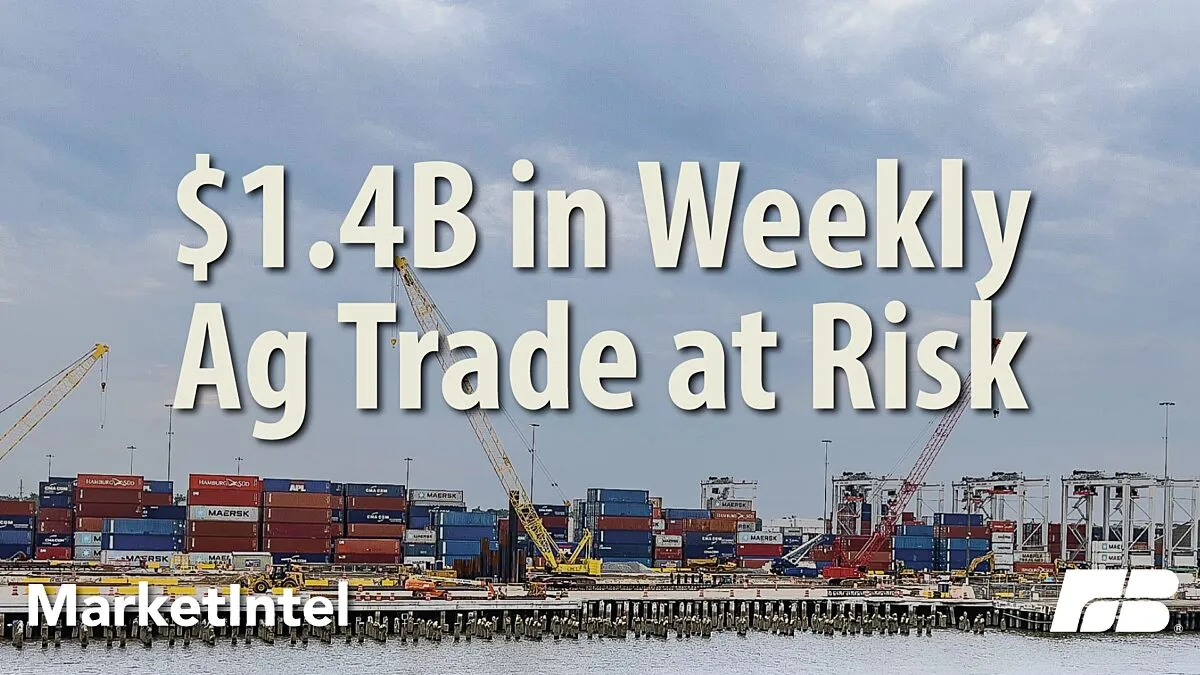The US Maritime Alliance (USMX) has filed a complaint with the National Labor Relations Board amid a looming East Coast port strike, raising concerns within the meat industry over potential export disruptions.
Introduction
Tensions are mounting along the East and Gulf Coast ports as a possible strike looms just days before the current labor contract expires. On September 27, 2024, the US Maritime Alliance (USMX) filed a complaint with the National Labor Relations Board (NLRB), accusing the International Longshoremen’s Association (ILA) of refusing to come to the bargaining table to negotiate a new contract. With only days remaining before the expiration of the current master contract, the possibility of a strike is becoming more imminent, and key sectors like the meat industry are growing increasingly concerned.
The Stalemate: USMX vs. ILA
The current six-year master contract between the USMX and the ILA is set to expire on September 30, 2024. Despite months of negotiations, both sides remain gridlocked, with wage disputes at the heart of the ongoing conflict. USMX has raised the stakes by requesting immediate injunctive relief, which would force the ILA to return to negotiations in hopes of reaching an agreement before the deadline.
However, the ILA has responded with criticism, expressing frustration over what they see as poor negotiating tactics on the part of USMX. In a statement released on September 26, the ILA accused the alliance of filing the complaint as a distraction from the real issues at hand.
“USMX filing these charges four days before the expiration of the current master contract clearly illustrates what poor negotiating partners they have been,” the ILA said. “If it wasn’t for the ILA engaging in serious and productive negotiations, most of the local agreements would not have been settled over the past year.”
This impasse between the two organizations is not just a labor dispute but one that has significant implications for the broader U.S. economy, particularly industries dependent on the smooth operation of East Coast ports.
Meat Industry’s Concerns
The potential strike has already begun to reverberate through several industries, especially the meat sector. On September 27, the Meat Institute and the Meat Import Council of America (MICA) issued a letter to Daniel Maffei, chairman of the Federal Maritime Commission, highlighting their concerns about the disruptions that have already started to impact port operations, even before the contract’s expiration.
The letter warned of the severe consequences a strike would have on the American meat industry, which is heavily reliant on efficient port operations to export significant quantities of beef, poultry, and pork. The letter expressed frustration that despite efforts by some ports to extend their operating hours, disruptions were already beginning to take their toll. Ocean carriers have started announcing changes to their export services, and many are anticipating shipment cancellations to begin as early as October 1.
“Despite several ports extending gate hours, disruptions have already commenced, with a growing number of ocean carriers announcing changes to their export services and indicating shipment cancellations are likely to begin on Oct. 1,” the associations wrote in their letter.
The meat industry plays a critical role in the U.S. economy, with approximately 13% of beef, 15% of poultry, and 25% of pork products being exported annually. If the ports are paralyzed by a strike, the entire supply chain could be disrupted, affecting not only exports but also the availability of imported meat and poultry products used in popular retail products like ground beef and sausages.
Financial Impact on Meat Exporters
In addition to the logistical challenges, the Meat Institute and MICA raised concerns about the financial burden that a strike would place on meat exporters. They warned that the uncertainty caused by the potential strike could lead ocean carriers to implement excessive fees, including detention and demurrage charges, on shipments that are delayed due to the ports being non-operational.
“Many small and medium-sized companies will be forced to cease exporting, slow or halt production lines, and furlough employees as carriers implement their familiar price gouging tactics that allow them to profit from uncertain situations not caused by shippers’ actions,” the associations said.
For smaller meat exporters, who often operate on thin margins, these additional costs could be crippling. The combination of halted production, delayed shipments, and rising costs could result in job losses, decreased revenues, and the potential closure of some businesses.
Historical Context: The First Potential East Coast Strike Since 1977
The current East Coast contract covers around 45,000 dock workers and 36 ports from Maine to Texas. If a strike were to take place, it would be the first East Coast dock strike since 1977. The historical significance of such an event adds to the growing anxiety among industries dependent on port operations, as there is no clear precedent in recent years for how the economy might weather such a disruption.
The ports play a vital role in the U.S. economy, serving as gateways for imports and exports across a range of industries, from agriculture and manufacturing to technology and retail. A strike would not only disrupt exports but also delay the arrival of essential goods, exacerbating the already strained global supply chain that has been recovering from the impact of the COVID-19 pandemic.
Broader Economic Implications
The meat industry is not the only sector that stands to lose if a strike materializes. The ripple effects of a port shutdown could extend to trucking, rail transportation, and global trade. Industries that rely on a consistent and predictable transportation network, such as automotive, electronics, and consumer goods, could also face significant challenges.
The US Meat Export Federation has already issued warnings similar to those from the Meat Institute and MICA, emphasizing the potential damage a strike could cause to the broader economy. With ocean carriers likely to cancel shipments, the downstream impact on American consumers and businesses could be severe.
Moreover, the ongoing labor unrest may prompt discussions at the national level about the need for greater government intervention in port labor negotiations. With the U.S. economy so reliant on efficient port operations, there may be calls for more aggressive federal action to prevent strikes and ensure that essential goods continue to flow.
Conclusion
As the deadline for the current East Coast port contract rapidly approaches, the stakes are rising not only for the dock workers and port operators but also for the U.S. economy. The complaint filed by the USMX with the National Labor Relations Board underscores the severity of the situation, while the ILA’s frustration points to the complexities of negotiating labor contracts in an industry with far-reaching implications.
For the meat industry, the potential strike is a significant threat to their export operations, and the financial repercussions could be devastating for small and medium-sized companies. With ocean carriers already signaling changes to their export services and the possibility of shipment cancellations starting in October, businesses and consumers alike are bracing for the impact.
The next few days will be critical in determining whether a resolution can be reached between the USMX and ILA, or whether the U.S. will see its first East Coast dock strike in nearly half a century. Whatever the outcome, the situation highlights the fragile nature of supply chains and the interconnectedness of labor negotiations, global trade, and the economy.



